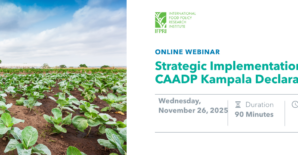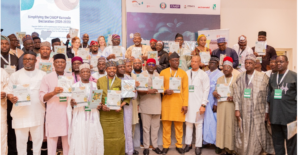By Ahmed, Mosab; Kirui, Oliver K.; Taffesse, Alemayehu Seyoum; Abushama, Hala; and Siddig, Khalid
Abstract/Description
Sudan has been embroiled in a high-intensity conflict between the Sudanese Armed Forces (SAF) and Rapid Support Forces (RSF) since April 2023, leading to widespread displacement and an escalating humanitarian crisis. This conflict, centered on Khartoum, an economic hub contributing nearly one-third of Sudan's GDP, has caused unprecedented economic and social upheaval. As of December 2024, over 12 million1 people have been displaced, and fatalities have exceeded 29,6002. Sudan's GDP has contracted sharply, with estimates from the IMF, World Bank, and African Development Bank projecting declines of 18.3% to 37.5% in 2023 alone, compounded by further drops in 2024. Unemployment has surged from 32% in 2022 to 46% in 2023, with household incomes declining nearly 50% relative to pre-conflict levels. Urban households, especially in Khartoum, have been disproportionately affected due to the destruction of infrastructure and loss of industrial jobs, while rural households face severe disruptions in agriculture and access to essential inputs. The conflict has strained household welfare systems and exacerbated food insecurity, with many families increasingly reliant on remittances and humanitarian aid to meet basic needs. These dynamics underscore the urgent need for effective policy interventions to address both immediate humanitarian needs and long-term recovery challenges.



